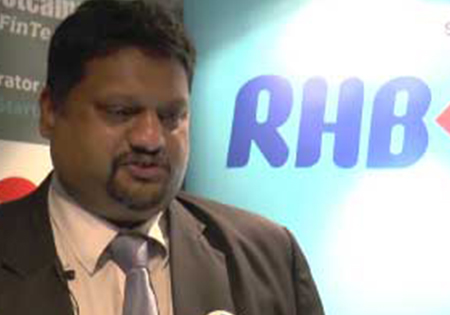In the News: Banking on Fintech

In the News: Soft Space enters new market, receives UnionPay International certification for our MPOS solution
February 29, 2016
Chang Chew Soon, Founder of Soft Space, Listed as Asia’s Top 100 Fintech Leaders
May 27, 2016

If you think fintech is only targeting areas of banking such as lending or fund-raising for small businesses or forex trades for consumers, think again.
It’s also taking aim as advisory stuff. Consider the “robo-advisor”. These are online wealth management services that provide low cost automated, algorithm-based portfolio management advise without the use of human financial planners. Couple that with crowdfunding, P2P lending, online forex trading and money changing at cheaper rates, banks should be worried, no?
Maybank’s group chief strategy officer, Michael Foong, acknowledges that fintech companies will take some business from banks. However, he notes that more tend to and will need to co-exist with banks.
“We believe that working with these fintech companies is a great way of re-imagining our relationship with our customers and that by working together, we can help create greater value for all parties,” he says.
On the question of how much banks stand to lose to fintech start-ups, Foong says, “With any new potential wave of disruption, estimates of this can be quite academic. No one really knows how much value fintechs will bring to banks, or how much they may disrupt the banks. What is clear, however, is that fintech companies are forcing banks to re-look their relationship with customers and how they operate,” says Foong.
The view is echoed by Tengku Datuk Sri Zafrul Aziz, group chief executive of CIMB Group. “With any new disruptive technology or solution, it is a matter of how you wish to approach it. Whether the glass is perceived as half empty or half full is for one to decide. We want to anticipate and capitalise on opportunities that would allow us to better serve our customers by offering more innovative and sophisticated financial and banking solutins,” he says via an email reply.
Rohan Krishnalingam, chief operations officer of RHB Banking Group notes that fintech startups are quickly “innovating banking and financial services by providing alternative lending and payment services through digital channels such as mobile & web.
“Realizing the impact of the fintechrevolution to our business, we have been involved in the fintech community to and been working closely with fintechs so that we are prepared to collaborate and create an ecosystem that is a win-win”.
Datuk Mohd Tahir, group CEO of Ambank group says: “We are concerned (about fintech) because there will be more players in the finance space however we will adapt. As part of our digital transformation which we are working very closely with our partner ANZ, we want to work with these companies. At the end of the day it has to be about us giving customers greater accessibility, giving them better experience, simple to use products thus greater convenience.
“One of the new areas we want to explore is on predictive behaviour. It’s really about giving the customers the right product at the right time.”
In fact, many banks have taken heed of the fintech’s revolution and have already taken initiatives to get involved, with some organising accelerator programmes to give startups a boost.
As for fintech’s that seem to work nicely with banks, consider Soft Space, a mobile payments technology company.
It helps turn smart phones into point of sale for credit cards using an additional device. Soft Space works with banks such as Maybank, CIMB and Kasikorn Bank in Thailand, to name a few. But it wasn’t so easy at first. Founder and CEO of Soft Space Chang Chew Soon explains that when they first began, their pitches to banks in Malaysia didnt’ draw much response. “None of the banks took us seriously. They were not sure if mobile payments were going to fly. Secondly we didn’t have much of a track record and we didn’t have much capital so the concern was that we would go bust at some point.”
How things have changed. Soft Space had processed over RM1bil worth of transactions in Malaysia by early last year and it is looking to double or triple this figure by 2020.
Interestingly, banks have launched a notable fintech development platform in the Islamic banking space. Six Islamic banks have launched the investment account platform, which facilitates direct investment by investors into viable ventures.
But how do banks look into the security side of things when delving into fintech? With technology evolving at such a fast pace, financial institutions constantly need to be on their toes and be updated with the latest security threats and countermeasures.
“Issues of security, personal data protection and other regulatory requirements such as those under the “Know Your Customer” guidelines and Anti Money Laundering Act are not new concerns for the bank as we have been adhering strictly to them.
“When we collaborate with fintech companies, these are areas which will naturally be brought to the fore,” Foong says.
RHB’s Rohan says the bank is investing in security solutions to further enhance cyber security. It also carries out extensive testing to ensure the areas concerned sure not compromised. “Customers’ privacy and data protection is among our key concerns as we move more and more banking and financial services onto the mobile and web. This is a trend that we cannot ignore as our customers are expecting from us,” he adds.
CIMB’s Zafrul says: The regional financial industry has not entirely felt the full impact of disruptive fintech solutions to their business and so are not vastly affected. Once fintechs reach a meaningful scale and are exposed to more risks, the long arm of regulation will set in.
“Let’s not forget that compliance cost for a financial service provider is rather high. The regulators have to find the middle ground where both banks and fintechs can thrive together.”
For the original post, kindly visit The Star
